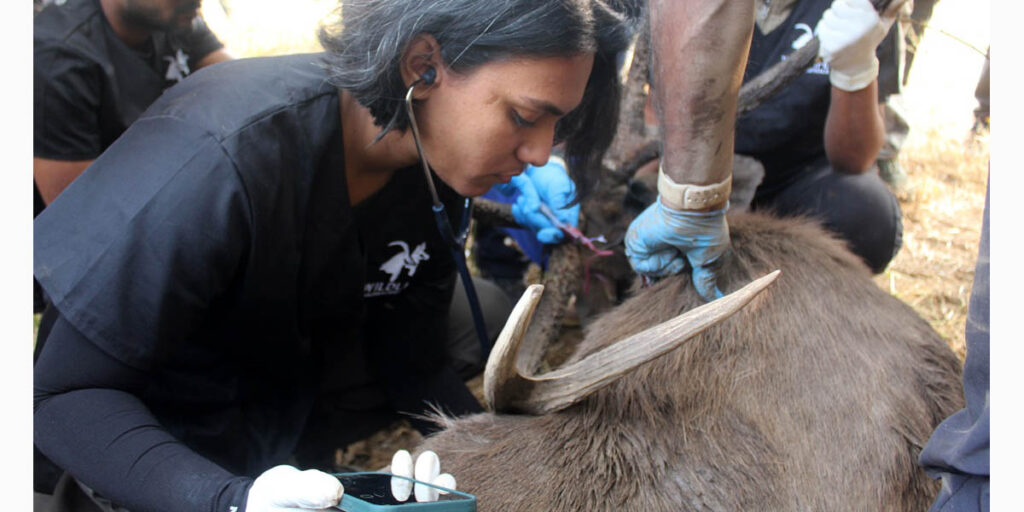Mastering your funding application: an online student’s guide to scholarships

By Meera, from India, studying MVetSci Conservation Medicine (Online Learning)
My name is Meera. I’m currently based in Mumbai, India and I’m a student at the Royal (Dick) School of Veterinary Studies. I am a Commonwealth scholarship recipient, and I study on a complete scholarship, which covers my entire tuition of three years.
I decided to do my postgraduate because this was the logical next step for me. It helps you improve your CV, your financial prospects and it was wonderful that Edinburgh offers distance learning courses such as mine, as it really made sense for me.
The best of both worlds
At the moment, I’m a dissertation student in my final year doing my thesis but I also work full-time. On my CV, I have the benefit of having three years of clinical experience and at the same time, I have been pursuing a veterinary Masters which has a lot of value because Edinburgh’s name is attached to it.
It’s very important that you look into the structure of your programme and what makes sense to you. I wanted both clinical exposure and an academic degree, which is why I started this programme. This made sense for me, but may not make sense for everyone.

You don’t need to study all at once
I had two semesters’ worth of tuition saved up before I applied for this programme, so after completing my Bachelors, I took two years to work and save money so that I could pay for two semesters. The good thing about many online Masters programmes is that you don’t have to do them all at a stretch. You can do a few semesters, take a break, come back next year and do the rest, which was my plan.
Steps to take for a successful scholarship application
First, the most important thing is for you to check the eligibility criteria of your programme for that scholarship. Then once you sit down to make your scholarship application, you need to have proof that you have applied for the programme, whether you have a conditional offer letter or unconditional offer letter. Then the next important thing is to have your documentation in order.
Again, check the specific details of your scholarship. I cannot emphasise this point enough because each scholarship is different, but in general they will require you to have a statement of purpose, letters of recommendation and if you are an international student, your programme, as well as your scholarship, might ask you for an English language test. Having these documents ready before you apply is really important, specifically to improve your chances of getting the scholarship.
Letters of recommendation (references)
Your letters of recommendation are a chance for your referees to really showcase what kind of student you are. They are for the scholarship commission to see how investing in you is a good decision.
Start preparing now and get all your references ready, because they are not going to wait for your referees to send them. If your referees haven’t submitted them by the deadline, you will be unsuccessful just because somebody else didn’t send your reference in time. Get your referees to prepare your references ahead of time. Be on top of it and start planning early.
Statement of purpose (personal statement)
In the statement of purpose, you want to sell yourself with the best elevator pitch, so write about your ambitions. This is where you can convince the scholarship commission that you have these and to say “I have these qualities to support my ambition. All I need is your financial support, and then I’m unstoppable.” Don’t just write about what you have done up to now, because that is what your CV is for. Write about what sets you apart. All these things are going to help you stand out for your scholarship applications.
And with a little bit of luck
The thing with scholarships is that the acceptance rate for most can be really low, so there is also a luck factor which you have to consider. To sum up, I would give you three pieces of advice for applying for a scholarship:
- The earlier you start, the better
- Check the specific conditions of the scholarship
- Always have a Plan B
Find out more
Commonwealth Distance Learning Scholarships
View our range of online programmes
Got questions about student life at Edinburgh?





This has boosted my understanding